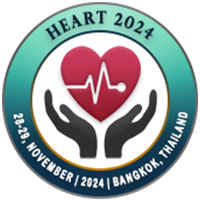
Zhyldyz Kazybay Isakova
, Kyrgyz State Medical Academy , Kyrgyz RepublicTitle : Reproductive health problems of migrant women from the highlands
Abstract
Due to increasing
migration processes of the population, 49% of which are women of reproductive
age, we studied clinical course of pregnancy and childbirth, perinatal outcome
of pregnancy in aboriginal (n-100) highland (Naryn, 2200m above sea level,
mountains of inner Tien Shan), aboriginal (n-94) Batken - southern region of
Kyrgyz Republic (1000m above sea level) and female migrants, from highland (n
-99) to lowland Bishkek (800m above sea level). The studied groups of women of
reproductive age were representative.
The course and
complications of pregnancy and childbirth in conditions of permanent residence
in the highlands, middle lands and, their perinatal aspect, when migrating to
the city (lowlands) were studied. The mean number of pregnancies and live-born
children was more than 1.5 times higher in mountain women than in valley
dwellers (6.41+0.26 vs. 4.13+0.28, P<0.05). The frequency of
low-birth-weight babies was high, even when born gestationally mature (less
than 2500 g in 7.6%). The complicated course of pregnancy in the highlands was
observed in 66.1% (anemia in 66%, threatened termination of pregnancy -18.2%,
toxicosis 30% preeclampsia - 3%, postpartum hemorrhage -30.8%). An increase in
the number of placentas with developmental abnormalities (54.4%) was observed
among the highland dwellers; in the decompensated form, a significant decrease
in the weight and area of placentas was observed. In residents of the middle mountains (1000 m
above sea level), pregnancy complications were observed in 13%, most commonly
mild preeclampsia -7%. It should be noted that the number of pregnancy and
childbirth complications among migrant women was even higher than among
highland aboriginal women. The number of maternal mortalities among female
migrants exceeded the figures (one in five died), pregnancy complications
amounted to -77.3%, against -66.1% for highland aborigines. This indicates the
maladaptation of migrants from high mountain regions. Hoping to get better
medical care in the city, these women have the opposite effect. Of pregnancy
complications, 11.8% had mild preeclampsia and 4.4% severe, gestational
hypertension -5.5%, threat of termination of pregnancy -19.1%, preterm labor
-10.3%, bleeding -5.6% Data from functional assessment after birth, also
indicated a lower adaptive potential than normal pregnancy. Especially low
scores, the frequency of respiratory disorders in newborns were characteristic
of children of women who gave birth in the highlands
The reason, in our opinion, is the
peculiarities of maladaptation of migrants from high mountain regions.
Biography
Zhyldyz Kazybay Isakova, works at the Kyrgyz State Medical Academy, received her PH(D) degree at the age of 35, assistant professor at the Department of Obstetrics and Gynecology, doctor of the highest category. She is the author of about 100 scientific publications.

